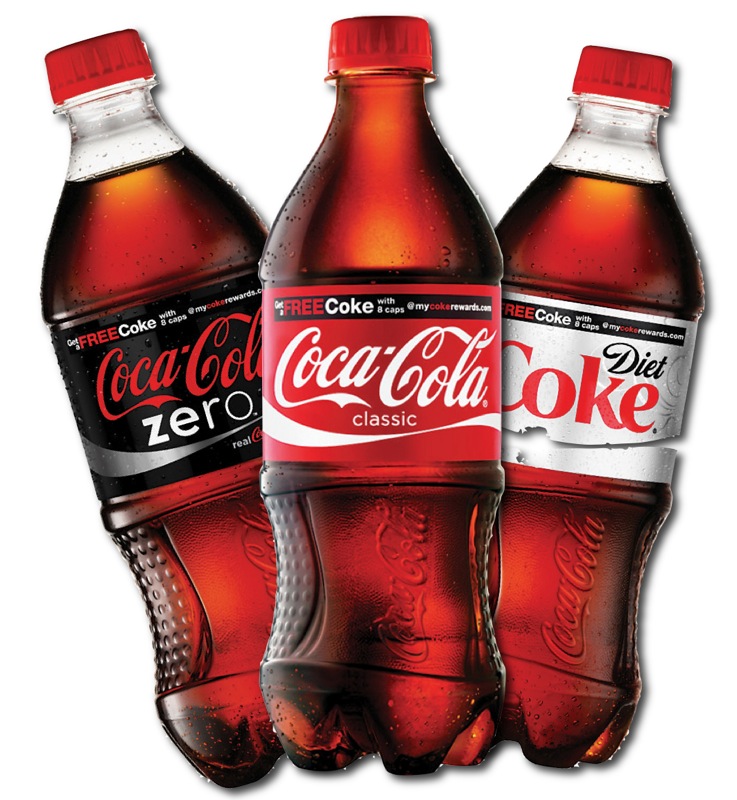Health
Cola’s SBI Delivers Ultramodern Medical Equipment to UITH

… UITH Counts Gains of Strategic Intervention
The Coca-Cola System in Nigeria in continuation of its efforts at strategically ameliorating maternal and neonatal mortality has donated ultramodern medical equipment to the University of Ilorin Teaching Hospital (UITH), under its Safe Birth Initiative (SBI).
During the presentation of the equipment, valued at well over $500,000.00 on Thursday November 17th, Communications Manager, Coca-Cola Nigeria, Ifeyinwa Ejindu, shed light on the Safe Birth Initiative as the health-centric strategy with which the Coca-Cola System seeks to reduce the high rate of deaths being recorded during childbirth in Nigeria, both for mothers and newborns.
She noted that the initiative was launched in 2018 to deliver equipment and technical capacity building in tertiary health institutions across Nigeria, which she was optimistic would contribute in bridging the shortfall in the availability of state-of-the-art medical equipment and skilled manpower to effectively maintain and utilise available equipment.
A joyful Chief Medical Director, University of Ilorin Teaching Hospital, Prof Abdullah D. Yussuf expressed gratitude at the timely intervention of the Coca-Cola System in the healthcare sector.
According to Prof Yussuf, who was represented at the occasion by Chairman, Medical Advisory Committee, (C-MAC), UITH, Dr. L.O. Odeigah, some of the prominent gains of SBI’s intervention include capacity building, helping secure accreditation for courses and improved medical care.
He cited the cost savings the Institution recorded with the intervention which has seen several moribund medical equipment resuscitated, the human capacity built which would ensure sustainable use of the equipment and the role played by the equipment in securing accreditation for certain courses by the Institution.
In his words, “On behalf of UITH and those who would be benefiting from the equipment, I want to register gratitude to the donors, Coca-Cola Nigeria. It is evident that the equipment being presented to us today comes with cutting-edge technology that will aid solution to complex medical conditions. I am certain that this will impact the entire Kwara State and beyond”.
Ejindu also noted, that the SBI was launched in 2018 in partnership with the Federal Ministry of Health, the Office of the Senior Special Assistant to the President on Sustainable Development Goals, and US-based NGO, Medshare International, with a view to supporting and strengthening the country’s healthcare capacity in line with the SDG goals that relate to maternal and new-born mortalities.
She added that this year’s interventions have seen top-notch equipment donated to the University of Port Harcourt Teaching Hospital (UPTH), Rivers State, the Aminu Kano Teaching Hospital, (AKTH), Kano, earlier this year, before the donations made to UITH in Ilorin, Kwara State. She indicated that the company will continue to deepen interventions with the possibility of impacting a fourth health institution before the year runs out.
According to her, before the kickoff of this year’s SBI, it had reached over 56,000 families with over 21,000 mothers and babies impacted through its social investment program. Similarly, under the initiative, Coca-Cola Nigeria has successfully upskilled over 300 biomedical engineers and 400 end-users with requisite knowledge and skills to ensure optimal utilisation of the medical equipment, and their effective maintenance.
The impact of the SBI could be best appreciated under the background that the United Nations Children’s Fund (UNICEF), places the neonatal mortality rate in Nigeria as at 2022 at 56.220 deaths per 1000 live births, a 2.57 per cent decline from 2021.
According to UNICEF, the maternal mortality rate in Nigeria currently contributes to 10 percent of the global death rate as it stands at 576 per 100,000 live births. This means that each year, over 262,000 babies die due to issues such as diarrhea, infection, premature birth, asphyxia, or congenital anomalies.
Eben Armstrong, Director, Biomedical Engineering Training & Technical Services, Medshare International, expressed Medshare’s commitment to the triangle partnership as they recognise the damage to families that results from high neonatal and maternal mortality rates.
He said, ‘’We are a humanitarian aid organisation dedicated to improving the lives of people all over the world. We just don’t provide equipment, we provide capacity building to the biomedical engineers and technicians aiding their efficient usage of available medical equipment, and this has brought hope to countless Nigerians through the Safe Birth Initiative”.
Various dignitaries who graced the event expressed gratitude to the donors and enjoined the UITH to diligently utilise the equipment for the benefit of mankind.
Some other hospitals that have benefited from this intervention include National Hospital Abuja, Federal Medical Center, Ebute-Metta, Federal Medical Centre, Owerri, Wesley Guild Hospital Ilesha, and Alimosho General Hospital.
Health
Global Experts Tackle Stroke Management Crisis With Training In Asaba

Experts consider that stroke is a growing health crisis in Nigeria, affecting thousands of lives every year.
To tackle this challenge, the World Stroke Organization (WSO), Stroke Action Nigeria, Federal Medical Centre (FMC) Asaba, Asaba Specialist Hospital (ASH), and FMC Onitsha joined forces for an intensive four-day training program. Their mission? To equip healthcare workers with the skills to prevent, detect, and treat strokes more effectively.
The program brought together leading stroke specialists from around the world, including WSO President Prof. Jeyaraj Pandian, former WSO President Prof Sheila Martins, Dr. Rita Melifonwu, CEO of Stroke Action Nigeria and Board Member of the World Stroke Organisation, and other experts from Nigeria, India, Canada, Rwanda, and the UK. Through hands-on training and expert-led sessions, healthcare workers learned best practices for recognizing stroke symptoms, responding in emergencies, and providing life-saving care.
ALSO READ: 2027: Okpebholo Assures Tinubu With Snatch Of 17 LG Chiefs From PDP
Dr. Emmanuel Ezunu, Chief Consultant Neurologist at FMC Asaba, stressed the urgency of the training, saying, “Stroke is the leading cause of disability worldwide and the second leading cause of death. We all need to work together to reduce the burden of stroke. This training is a crucial step to ensure our health workers are well-equipped to handle every stage of stroke care.”
The training sessions took place simultaneously in multiple locations, including FMC and ASH in Asaba as well as in Onitsha, Anambra. Dr. Francis Ugoeze, Lead for the Research Study Recruitment and Implementation Team, warned about the rising risks among young people due to poor lifestyle choices. “It’s important to watch what we eat, avoid junk food, smoking, and hard drugs, and stay active,” he advised.
Dr. Melifonwu emphasized that stroke is not just a health crisis but a preventable one. “One in four adults over 25 is at risk. We need more awareness and lifestyle changes to reduce stroke cases,” she said. She also shared plans to establish ‘Life After Stroke’ centers in Nigeria, offering much-needed support for survivors, especially those struggling financially.
Dr. Chiamaka Okereke, a consultant neurologist and member of the research team, highlighted how these efforts are about more than just education—they’re about saving lives. “If more people recognize stroke symptoms early and seek medical help immediately, we can prevent many unnecessary deaths and disabilities,” she explained.
Experts at the event also called on the government to take action by increasing public awareness and investing in stroke care facilities. They emphasized the need for acute stroke units and post-stroke rehabilitation centers to provide patients with the care and support they need to recover.
This initiative represents a major step toward a future where stroke is no longer a leading cause of disability and death in Nigeria. With greater awareness, improved healthcare training, and better facilities, countless lives can be saved.
Health
Nigeria Strengthens Airport Screenings Amid Spread Of China’s HMPV Virus

The Nigerian government has increased surveillance at major international airports in response to the outbreak of Human Metapneumovirus (HMPV), recently discovered in China and now spreading to several countries, including India, Hong Kong, Malaysia, and Kazakhstan.
Port health officers have begun screening arriving passengers for symptoms of the virus, following a directive from the Minister of Health, Muhammad Ali Pate.
According to a source at Murtala Muhammad International Airport (MMIA), Lagos, “There is no cause for alarm as the Port Health Service has been mandated to start screening the passengers, and we are not taking anything to chance.”
The Human Metapneumovirus has sparked global concern after over 5,000 hospitalisations were reported in the United Kingdom due to respiratory infections linked to the virus.
READ MORE: Speed Darlington Sues IGP For N300M Over Unlawful Detention
The Nigeria Centre for Disease Control and Prevention (NCDC) has issued an advisory to monitor global developments in collaboration with the Ministry of Health and Social Welfare. Dr Jide Idris, Director-General of the NCDC, stated, “We aim to provide timely, accurate information and guidance to keep the Nigerian public informed and prepared.”
The agency also debunked rumours that the World Health Organization (WHO) had declared HMPV a Public Health Emergency of International Concern (PHEIC), urging the public to disregard such claims.
Screenings have commenced at key airports, including MMIA, Lagos, and Nnamdi Azikiwe International Airport, Abuja. Despite the heightened precautions, the Nigeria Civil Aviation Authority (NCAA) has yet to issue a formal circular to airlines on mandatory passenger checks.
The surge in respiratory infections globally has heightened pressure on health systems. In the UK alone, flu cases rose sharply over the holiday period, with over 5,000 hospitalisations reported by December 29, 2024. There has also been an increase in hospitalisations linked to COVID-19, norovirus, and RSV.
As global temperatures drop and respiratory infections continue to rise, Nigerian authorities remain vigilant, aiming to prevent the spread of HMPV within the country.
Health
Africa Leads Global Progress In HIV/AIDS Fight, Says WHO
Africa has made remarkable progress in reducing new HIV infections and AIDS-related deaths, according to the World Health Organization (WHO).
Dr. Matshidiso Moeti, WHO Regional Director for Africa, highlighted these achievements in her statement to mark this year’s World AIDS Day, themed “Take the Rights Path: My Health, My Right” on Friday.
READ ALSO: Atiku Gloats Over AUN’s Achievements Ahead Of 20th Anniversary
For the first time in 2023, the number of new HIV infections outside sub-Saharan Africa surpassed those within the region, underscoring Africa’s significant progress.
The continent is also a global leader in advancing the 95-95-95 UNAIDS targets aimed at ensuring 95% of people living with HIV know their status, 95% of those diagnosed are on treatment, and 95% of those treated achieve viral suppression.
“Seven countries have already achieved the targets, with the overall rating for the region currently at 90-82-76,” said Dr. Moeti. “About 21.3 million people are now on antiretroviral treatment, raising their life expectancy.”
Botswana and Namibia were recognized for achieving significant milestones in preventing mother-to-child HIV transmission, earning silver and bronze tier statuses, respectively, under WHO’s Path to Elimination of HIV initiative.
African countries are also adopting innovative prevention methods, including oral and long-acting injectable pre-exposure prophylaxis (PrEP) and the dipivefrine vaginal ring.
Dr. Moeti stressed that while these tools are vital, their impact depends on accessibility.
“The value of these innovations depends on their universal accessibility,” she stated, emphasizing the need for investments and policy reforms.
Dr. Moeti called for an end to stigma and discrimination, which she said continue to hinder progress.
“We have a collective obligation to protect human rights, specifically ensuring that health care is available to everyone, without any discrimination, regardless of their HIV status, background, gender, or where they live. Stigma and discrimination cannot be allowed to undermine the gains and impede our progress.”
While celebrating these advancements, Dr. Moeti noted that disease outbreaks across the region pose a challenge to already overburdened health systems.
She emphasized the importance of strong, integrated, and person-centered health care systems to meet the needs of vulnerable populations.
“Let’s take this opportunity today to acknowledge the progress, but to also renew our joint commitment to eliminating HIV.
By protecting everyone’s right to health, and reducing new HIV infections, we can achieve an AIDS-free generation and ensure the sustainability of the HIV response,” she urged.
Dr. Moeti also highlighted the crucial role of communities in shaping strategies to eliminate barriers to care.
“We must ensure their voices are heard,” she said, emphasizing that the collective efforts of governments, partners, civil society, health care providers, and communities are essential in the fight against HIV/AIDS.























